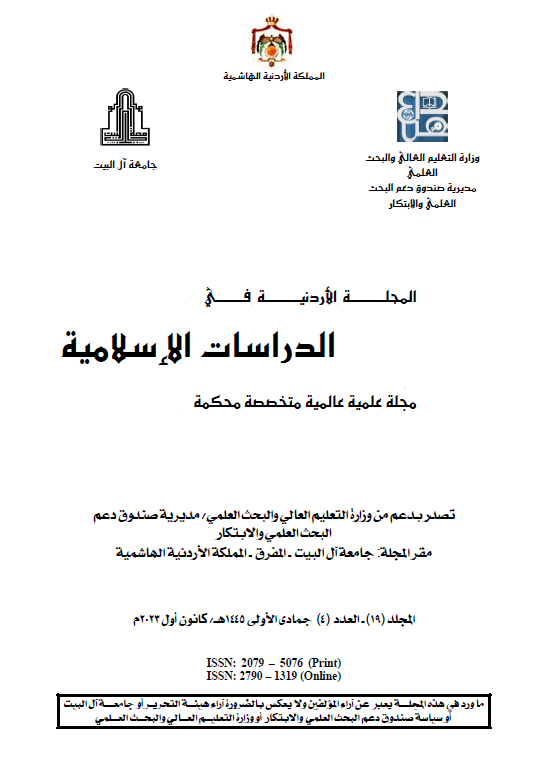To dispel the suspicion of injustice concerning God Almighty's statement: "When We decide to destroy a population, We (first) send a definite order to those among them who are given the good things of this life and yet transgress; so that the word is proved true against them: then (it is) We destroy them utterly" [Al-Israa, Ayat 16 (17: 16 Quran)
DOI:
https://doi.org/10.59759/jjis.v19i4.282Keywords:
Affluent, Village, Torment, Justice, InjusticeAbstract
The research examines the doubt related to the justice of Allah, as mentioned in His statement, "When We decide to destroy a population, We (first) send a definite order to those among them who are given the good things of this life and yet transgress; so that the word is proved true against them: then (it is) We destroy them utterly." [Quran, Surah Al-Isra, 17: 16], and what might lead to the perception of a contradiction with His saying, "And no bearer of burdens will bear the burden of another." [Quran, Surah Al-Isra, 17: 15]. The researcher sought to address the earlier issue, initially by explaining the scholars' differences regarding whether justice is one of the names of Allah or not. The research also underscores the consensus among scholars that justice is an attribute of Allah.
The study concludes that there is no contradiction between the two aforementioned verses. It does so by explaining that the punishment may befall the sinners for several reasons, including the prevalence of corruption and their assumption of authority over the people, their disobedience to Allah despite His blessings upon them, and the punishment inflicted upon the inhabitants of the city due to their failure to condemn the affluent and sinful among them. The research also explores the possibility that the punishment may befall the non-sinners who will be rewarded on the Day of Judgment for their good intentions, or Allah may compensate those who endure the punishment with various forms of blessings despite their lack of wrongdoing in place of the punishment. The study also emphasizes that even if Allah punishes those who are not disobedient, He, the Exalted and Glorious, exercises His sovereignty over His dominion, and His actions in His dominion are not considered unjust to anyone. The research is divided into an introduction, three sections, and a conclusion that includes the most significant findings and recommendations.





